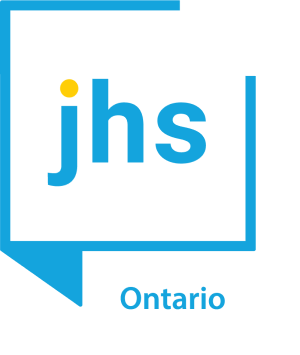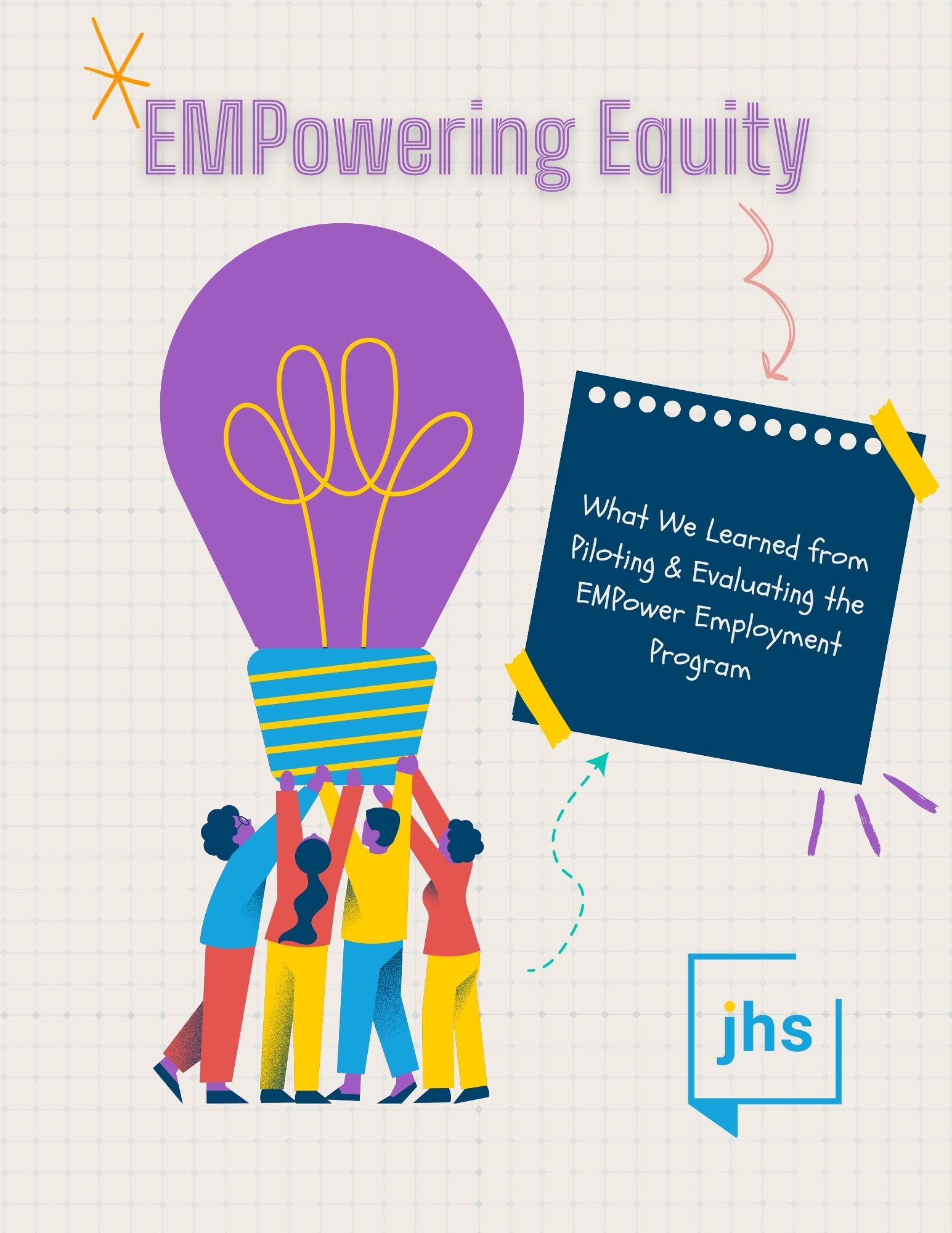Overview:
The journey to meaningful employment for marginalized jobseekers involves more than providing job opportunities – it can also require comprehensive, wraparound supports that address the unique and overlapping systemic barriers experienced by these populations. Without this holistic approach, many individuals are left to navigate complex systems on their own, without the necessary support and resources needed for long-term success in the workplace.
This report will detail the program’s development, outcomes, the key lessons learned, and best practices for future implementation. The following sections outline the program’s lifecycle through five distinct phases. JHSO designed the EMPower program to address employment challenges faced by justice-involved individuals from diverse backgrounds, with a focus on supporting Black, Indigenous, and newcomer populations. By focusing on skill development, cultural responsiveness, and holistic support, the program aligned with best practices for improving employment outcomes among these groups. The program’s inclusive and adaptable approach helped participants build the skills and confidence necessary to succeed in the workplace, ultimately contributing to reducing employment barriers and promoting economic inclusion.
Resources
Program Phases
Phase 1:
ResearchBefore developing any program materials, extensive research was conducted to identify the best practices for addressing and supporting the employment needs of Black, Indigenous, and newcomer individuals with criminal justice involvement.
Phase 2:
Collaboration with AdvisorsTo ensure the program was inclusive and culturally sensitive, JHSO worked closely with advisors who had direct experience in providing employment services to individuals with criminal justice involvement.
Phase 3:
Program DevelopmentThe EMPower program was developed as an eight-module pre-employment training series designed to be delivered over 12 weeks. Participants were required to complete all program modules to be recognized as having successfully finished the program.
Phase 4:
Pre-Employment TrainingThe EMPower program offered a 12-week pre-employment training, with 8-weeks dedicated training. Before entering the program, each participant was assessed for job readiness to ensure they were prepared to engage fully and transition into the workforce.
Phase 5:
Connecting to EmploymentProgram staff provided ongoing support to participants in securing employment within their industry of interest. This included identifying relevant job opportunities, assisting with updating cover letters and resumes tailored to specific job applications, and helping participants prepare for interviews.


